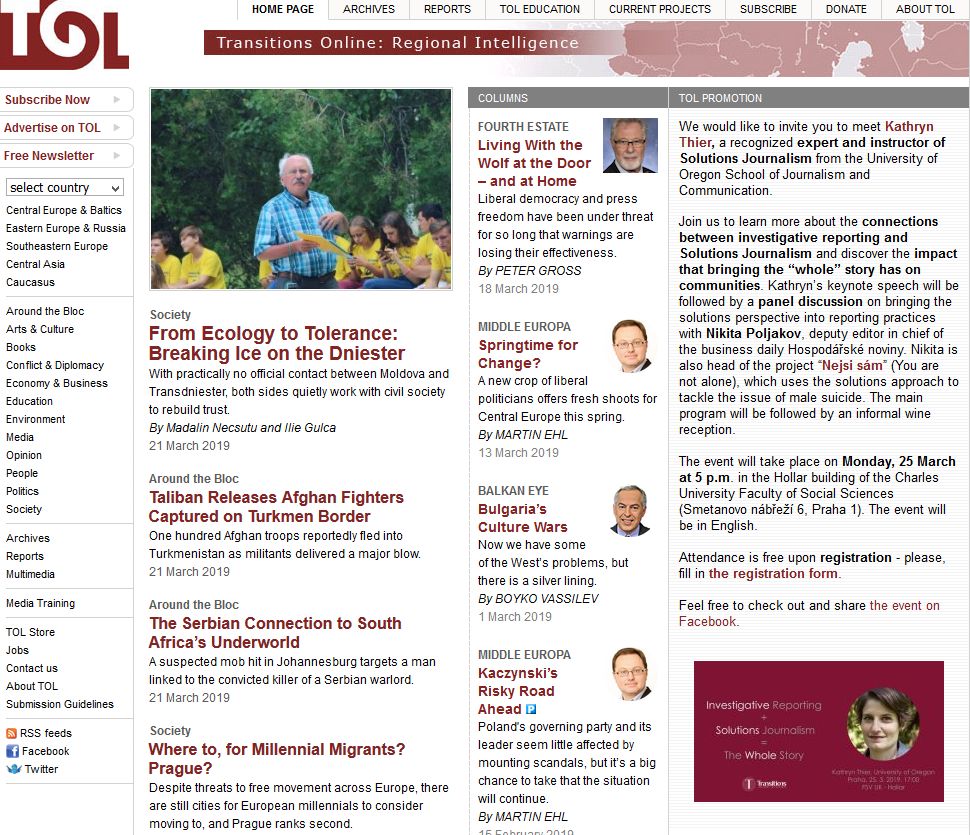
Around the Bloc: Around the Bloc - Bulgarian Officials Charged in Fake Passport Scheme
Operation reportedly sold Bulgarian ancestry certificates to people in non-EU countries.
More...We kindly inform you that, as long as the subject affiliation of our 300.000+ articles is in progress, you might get unsufficient or no results on your third level or second level search. In this case, please broaden your search criteria.

Operation reportedly sold Bulgarian ancestry certificates to people in non-EU countries.
More...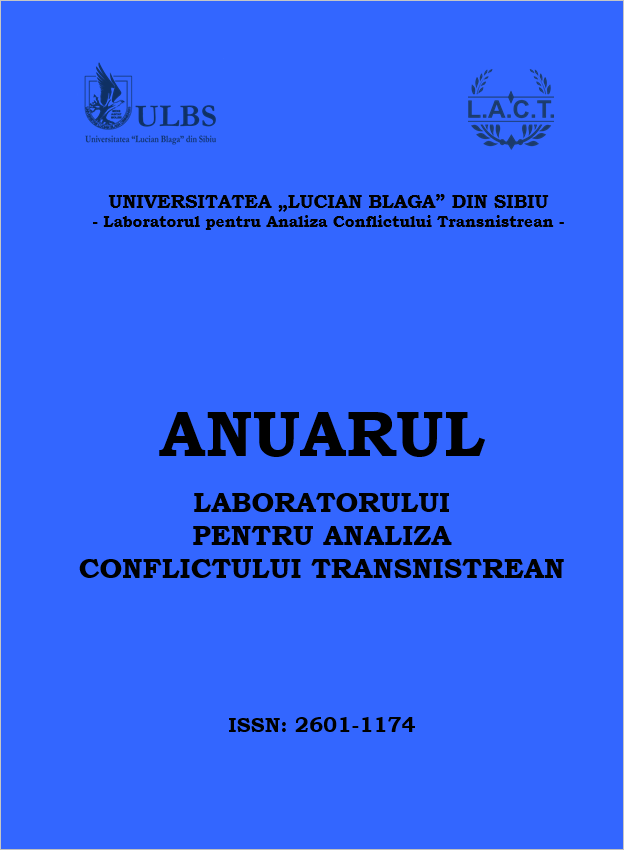
One of the stringent and actual problem of Republic of Moldova is Transnistrian conflict. The current Russian-Ucrainian crisis, which has a direct impact on regional security, creates conditions that can contribuite to the resolution of the Transnistrian conflict, including the territorial reintegration of the country. This article analizes some strategies for resolving the Transnistrian conflict.
More...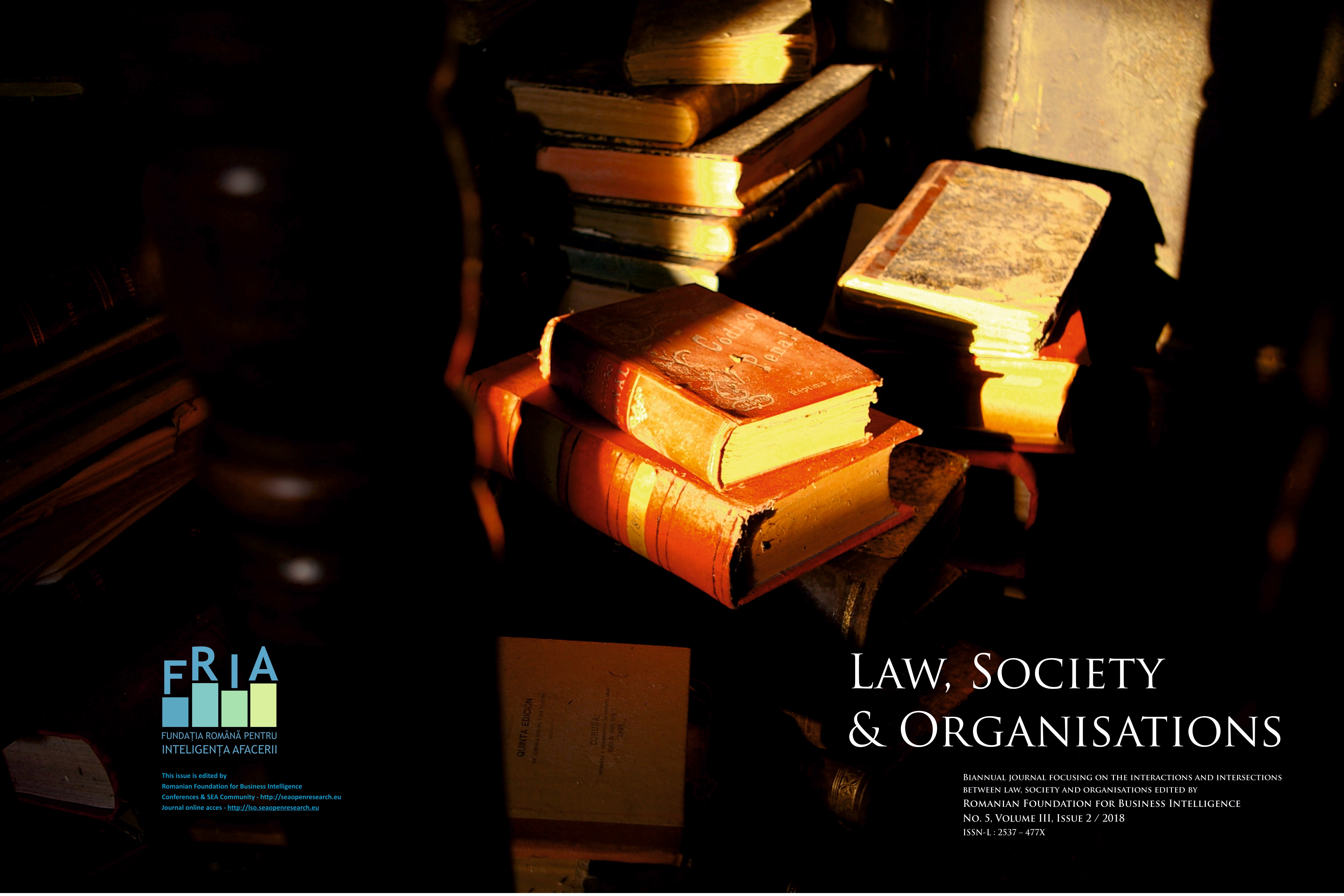
The activity of some great politicians and statesmen of the time was of particular importance for the achievement of the Great Union in 1918. A remarkable personality of that time is Ion I.C. Brătianu. In this study we recall the great politician and statesman and in particular his major contribution to the adoption of the Constitution of 1923 which conferred constitutional significance to the great Union; he also contributed to the legislation adopted on the basis of the Fundamental Law from 1923 which aligned the Romanian state to the European states. The study outlines the historical context and content of the Declarations adopted in 1918 by which the Romanian provinces under foreign rule joined the Kingdom of Romania. We consider that these documents are legal and political acts of constitutional value that are important for Romanian constitutionalism.
More...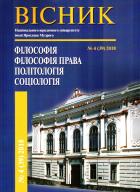
The author in the article examines the historical roots and economic and social reasons for the coming to power of the unconventional representative of the US Republican Party, multimillionaire Donald Trump. Trump’s phenomenon is interpreted by the author as an American form of revanchism, as revenge for the past, in which the United States lost its positions in the development of the national economy and social sphere. The main characteristics and motivational aspects of the voting of the typical voter D. Trump (white middle-aged men) are revealed. The loss of privileges and economic and social status for whites in the outsider states is seen as the main revanchist motive for supporting L. Trump’s electoral core. Parallels are drawn between the phenomenon of the right-wing politician in France, M. Lipin and D. Trump, which in many respects repeats the ideological vector of the French nationalists. The exploitation of patriotic virtue and intense xenophobia are common features of the campaigns of M. Le Pen and D. Trump. The first year of the reign of US President D. Trump and the policy of American revanchism with its close ties with dissatisfied whites provoked the growth of protest moods and extremist groups. The author concludes that President Trump and trampism are not a new or unprecedented political phenomenon in the United States. Trumpism is the result of the activity of an opportunistic candidate who uses in the classic revanchist context the fears of his supporters who face profound social changes.
More...
Problem setting. Since the creation of the United Nations, it has been 73 years since, the world has changed dramatically, and accordingly, the Organization must change, rebuild under new realities. Due to the increase in the number of international conflicts, global problems of our time, the intensification of world globalization, informatization and computerization of all spheres of society, old methods and ways of getting out of crisis situations either cease to work or become ineffective. Therefore, the way in which the United Nations is transformed will determine the state of affairs in the international arena, world peace and security.Recent research and publications analysis. In the sociology of international relations and related academic disciplines, the issue of UN activity and development was studied by such scholars as B. M. Ashavsky, M. P. O. Baccarini, M. O. Baimuratov, Z. Bauman,S. Browne, M. V. Buromensky, R. Butler, S. Chesterman, K. Engelbrekt, Y. P. Godovnik, R. V. Guban, J. M. Hanhimaki, D. Howell, I. Johnstone, D. Malone, P. Nadin, O. V. Serdyuk, B. I. Tarasyuk, N. Turchin, Yu. O. Voloshin, T. J. Weiss, I. V. Yakovuk, Y. M. Zhukovsky,A. M. Zlenko et al. The situation on the international scene is changing, and today the United Nations is faced with new challenges and challenges that have not been studied by the authors or have been studied fragmentarily, so the appeal to comprehend the possible models of reforming the UN in today’s conditions is quite expedient.Paper objective - identification of problems in the activities of the United Nations and its ability to perform the tasks set before the organization, as well as proposals to overcome the problems identified to ensure the effectiveness of the UN work.Paper main body. The UN structure is rather complex and includes a large number of different organizational units of committees, commissions, departments, etc. Main structural units the General Assembly, the Security Council, the Economic and Social Council (ECOSOC), the International Court of Justice, Trusteeship Council (suspended on 1 November 1994), the Secretariat. From the point of view of the level of authority, the General Assembly and the UN Security Council are the most important.The beginning of the active reform process of the United Nations is linked to the election of Secretary-General Kofi Annan in 1997. During the 52nd session of the UN General Assembly, the main directions for updating the UN were proposed, including structural changes in the Secretariat, coordination of organizations of the UN system at the country level, and improving interaction with civil society. This topic was developed at the Millennium Summit in 2000 immediately after the 55th session of the UN General Assembly, which took place in September of the same year.Summing up the achievements of the United Nations during its existence, it is worth pointing out the process of its transformation from the organization, which was focused mainly on conference services, to a truly global provider of services, which operates in virtually every corner of the world, thereby helping to improve the lives of people in need of assistance. The following statistical information confirms the progress achieved: more than 70 % of the annual budget is allocated to peacekeeping and other field operations, which is almost 20% more than in the mid-1990s; the number of humanitarian missions in creased from 12 to 43; the number of human rights defenders of the Office of the United Nations High Commissioner for Human Rights in the states has increased by almost four times. However, there remain problems that have not yet been overcome, the most important of them is the reform of the Security Council.Discussions about reforming the UN Security Council have been taking place since the first years of its existence. The need for the reform of the UN Security Council is due to significant changes in the world that took place after the Second World War: economic, military-political, demographic, etc. The current composition of the UN Security Council does not proportionally represent the geographical zones of the conflict. Among the 15 members of the UN Security Council, 5 seats were assigned to the Western Europe and other Western European countries (including three permanent members), 2 to Eastern Europe (including Russia), 3 to the Asia-Pacific region (APR, including China), 3 to Africa and 2 - Latin America and the Caribbean. These regional quotas show that one-third of the seats in the UN Security Council are in the «golden billion», while Eastern Europe, in which there are many unsettled conflicts, is represented only by Russia and one nonpermanent member, and the Middle East is the source of the most severe conflicts, has only one representative from the APR group. In addition, the Asian quota can not always take into account the positions of States whose interests affect a number of territorial conflicts in the South China and East China Seas through which the main sea routes of the world pass.Conclusions of the research. There is a need for further UN reform. It is necessary to consistently carry out the reform of the UN Security Council, forming within its framework the agreed conceptual framework and practical measures to preserve and strengthen it as the central UN body, but the transformation is necessary: the world has changed, the structure that protects it must be changed. At the initial stage it is necessary to increase the number of members of the Council, the number of permanent members should reflect the regional picture of the world, new permanent members do not have veto power for 15-20 years.
More...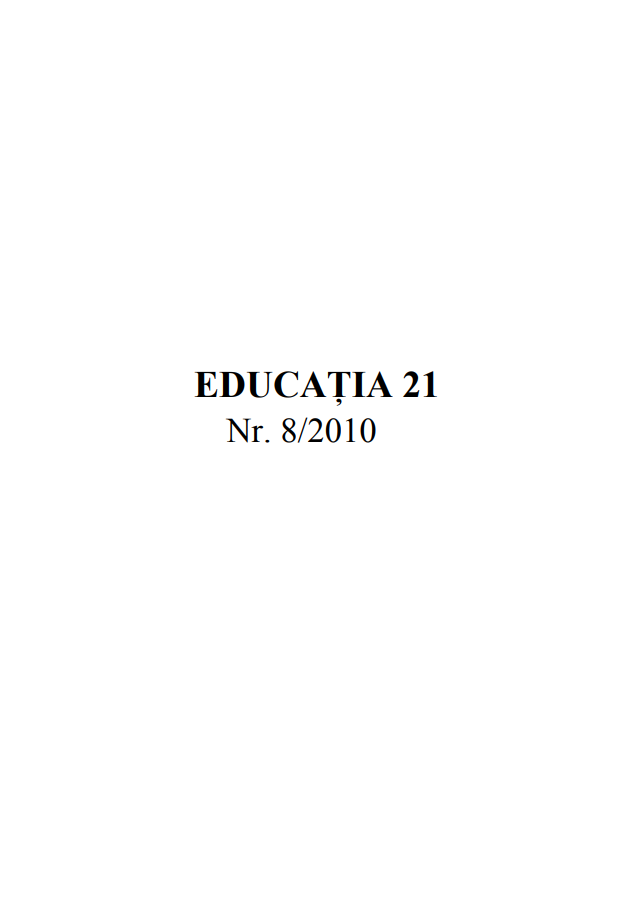
The extensive issues deriving from human medically assisted reproduction and bio-technologies are not a part of the present curriculum for lower education while the very few information that the teachers offer to their students are defective or out-of-date. In universities, this particular field of knowledge is taught in medical schools only, but the problems resulting from the legal vacuum that Romania has to confront today are the basic argument for promoting a non-biased position favoring the implementation of bio-technologies as a study subject in law schools’ curricula. The data brought up together by scientists up until now must be presented in a condensed manner, to allow an intensive approach of the subjects derived from modern science. This is the only way that may lead to a proper lower and higher education of those who are to become not only the scientists of the future but also of individuals able to show respect for the quality that changes us from simple living beings into humans: the dignity of our species.
More...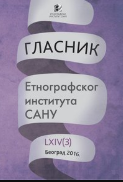
Gender is often overlooked, but important factor in research on migration. Women enter into migration experience as active individuals, but also encounter different difficulties than men do. Although it cannot be claimed that these differences are experienced by all women in the same way, we can conclude that they are the consequences of the gendered reality we live in. The article is discussing the gender specific experiences that female migrants encounter on their travel. It focuses on different forms of violence they are facing and on experiences of pregnant women. Furthermore, it deals with the legislation concerning refugees and tries to show how this legislation indirectly creates threats to women migrants while at the same time it is depriving them of power and victimizes them. It is based on understanding the legislature as man-centred, which means that it is mainly shaped by experiences of men while often not examining the specific experiences and needs of women. The data for the interpretations is non-structured and semi-structured interviews collected during field work in three refugee centers in Serbia. The interviews were mostly focused on experiences of women while traveling on the West Balkan route. They were further analyzed with anthropological and related literature.
More...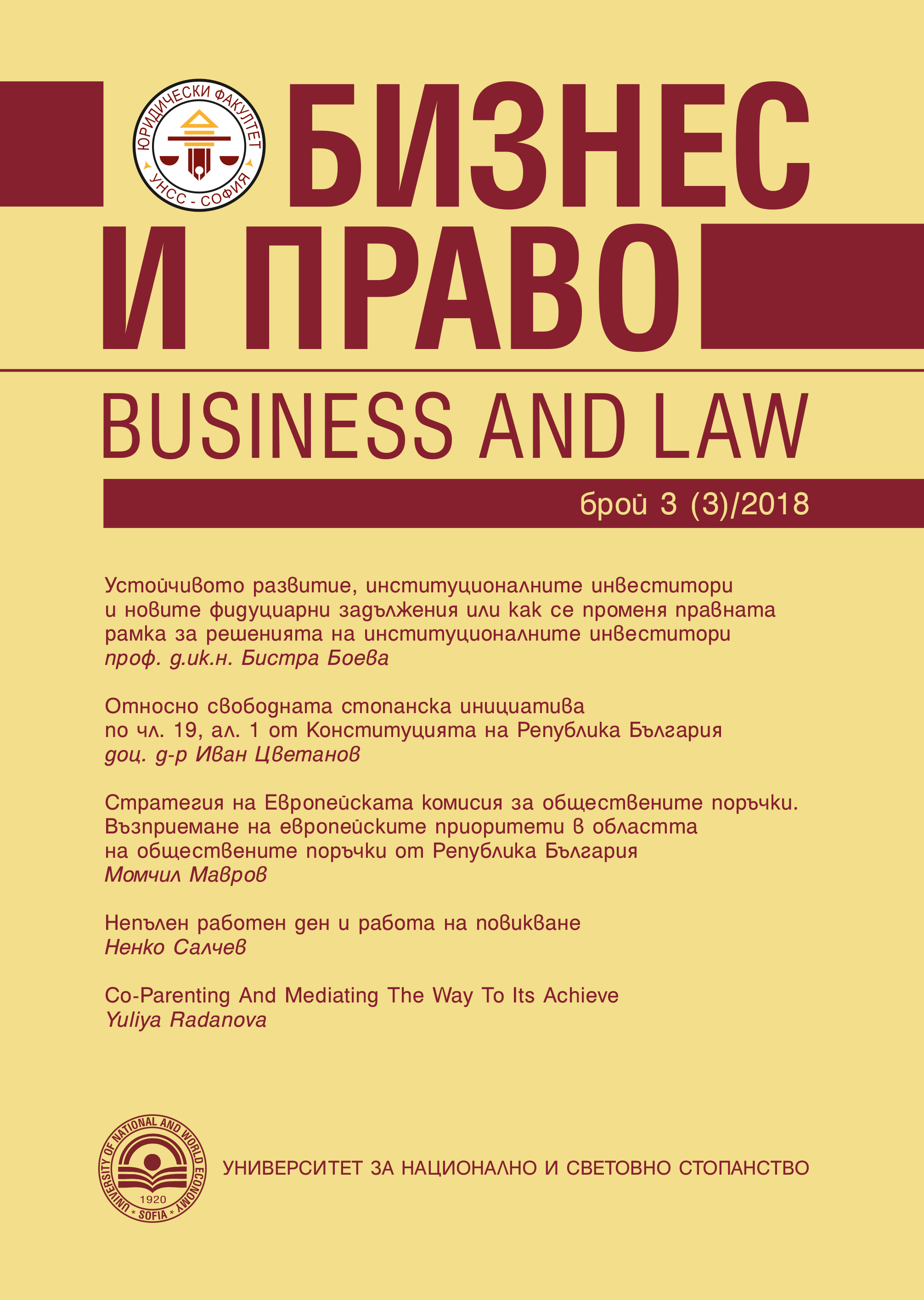
Within the European Union, a very large percentage of public investment is spent through public procurement. This trend has a significant impact on the financial costs of the Union, which is why a number of measures have been taken to create an adequate and flexible legal framework to ensure the delivery of better and more efficient public procurement. Some of these measures are aimed at adopting appropriate acts in the field, such as: Directive 2007/66 / EC of the European Parliament and of the Council, Directives 89/665 / EEC and 92/13 / EEC, the Single Market Strategy (COM (2015)) 550), as well as the European Commission‘s 2017 Public Procurement Strategy. The latter document is important for improving European practices in the field, as it defines priorities in Community policy with regard to public procurement. The Bulgarian legislator should be well acquainted with the European legal framework for public procurement with a view to its proper application in national law.
More...
This article examines the extent and nature of part-time work and how it has changed over time. It examines factors influencing decisions of enterprises and individuals to offer and accept part-time work. Part-time work has become an important form of employment, which has grown continuously since the 1970s to the present. Its benefits are related to the prerequisites for reconciliation of work-life balance and the possibility of including in the labour market some groups of the society who are unable to work full-time. Part-time work allows employers to reduce their expenses for wages and gives them flexibility in organizing the work in enterprise. Its widespread use in certain cases entails risks of reducing the general level of worker’s protection, deteriorating working conditions, discrimination and even marginalizing part of the employees. Thus the possible continuation of the trend towards more flexible working time patterns should be pursued through a holistic approach combining certain aspects of employment, social security and tax legislation. In this way, the rights of employees will be guaranteed and expanded and also the negative effect of reducing the protection of workers and the transfer of economic risks to them will be limited. Special attention is paid to “on-call” and “zero-hours” labour contracts, in which there is no contractual minimum length of working time. Indicated are the negative impacts on the employee’s interests in the use of these types of labour contracts and how they transfer the economic risks from the employer to the employees. It is clearly stated why these types of labour contracts are not eligible under Bulgarian labour legislation and how their possible regulation could lead to the violation of the workers’ subjective rights.In conclusion, it is assert that in the Bulgarian system of labourrelations, part-time work has the necessary balance to protect theinterests of the parties. Employers in Bulgaria have the opportunity to take advantage of various forms of work organization in the enterprise, with only one of them being part-time work. The use of parttimework requires good planning of work processes and knowledge ofthe nature of business activity in order to ensure maximum efficiency of work and to reduce labour costs, which is the essence of good business management.
More...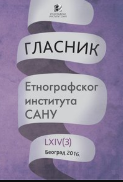
By focusing on narratives of customs officers from Serbia and Bosnia and Herzegovina, I examine how technological and organizational change of customs work influences governance and sovereignty of the state and how customs officers produced a specific imaginary of the state through their narratives. Supporting the contention that the transnational flow of goods and people restructures rather than undermines the state power, the Serbian and Bosnian cases reveal how technological and organizational change of customs work opened up new arenas for an expression of state sovereignty and new modes of governance. Furthermore, I analyze narratives about unauthorized actions, or shady business as customs officers call it, as a mechanism through which “the state” is discursively constructed.
More...
The paper featuring the project Tactile Heritage, implemented in 2015 at the Open-air Museum “Old Village” in Sirogojno, revises the process of inclusion of blind and visually impaired people in the program activities of the open-air museum. The current museum practice in Serbia shows that insufficient attention is paid to the groups of people for whom the museum activities are partially (or fully) (un)avaliable and those who do not take part in museum activities (by their or other people's will). The aim of the paper is to draw attention to the possibilities of improving availability and quality of museum content to people with disabilities. However, due to the studious presentation, the paper provides general overview of the legal and statutory regulations as well as specific and important concepts that are key to the system of general museology, which in their totality contribute to the improvement of modern museum practice. In accordance with the principles of new museology that attempts to break the two-century long tradition of exclusivity and elitism of museological work, the project Tactile Heritage demonstrates that the museum communication can (and must) balance between the peculiarities and constraints of users as well as specificities and possibilities of the new media.
More...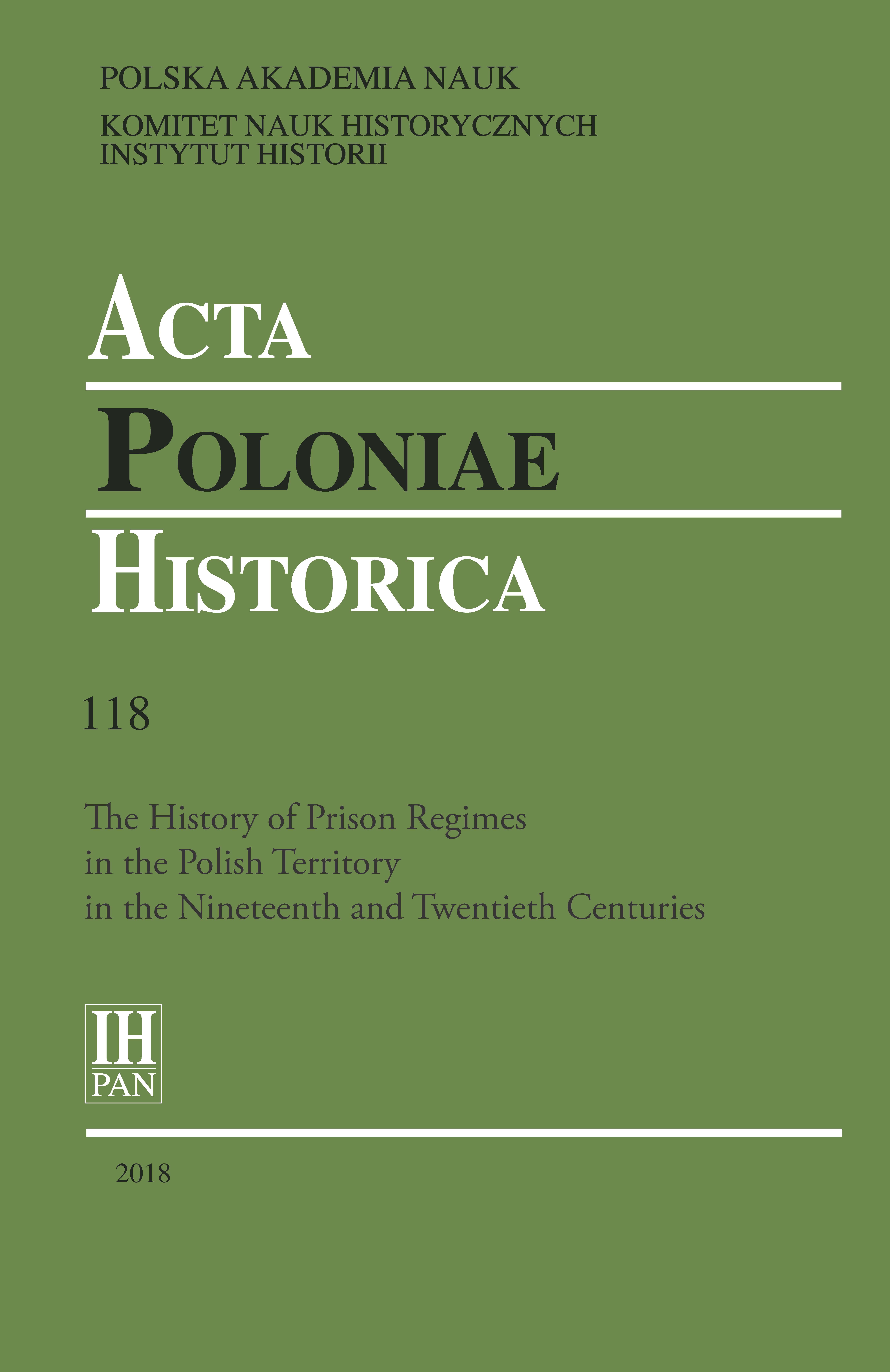
The officer core of the Prison Guard (Straż Więzienna, SW), a formation established only as late as 1932, emerged from the narrow circle of persons associated with the Prison Section, which emerged in 1918. Its membership consisted of a small cadre of Polish guards who had gained experience in prisons controlled by the occupying powers. Unless they had worked in prisons before 1918, the rank-andfile of the SW consisted of demobilised and/or retired soldiers as well as of would-be or ex-policemen. ‘Street people’ in many cases, they treated the work as temporary or took it up as an easy job. The reality they faced on the other side of the wall quickly verified their convictions about the task they had accepted. As a result, the ranks of the SW were given to heavy rotation, evident up to 1939. Employees of the interwar prison system did not enjoy much public regard; for some, leaving the army to become a prison guard felt like social degradation. Aside from a few minor exceptions – such as prison breaks, stories of convict abuse – this peculiar group of workers was generally absent from the public narrative of the re-established state. Naturally, its problems were debated among experts, but these debates did not seep into the press as often as those concerning the police. For many years after 1918, the SW continued to be perceived through the nineteenthcentury image of the guard as watchman, a personification of the oppressive partition governments. SW functionaries associated with the labour union established in 1932 as well as the Przegląd Więziennictwa Polskiego (Polish Penal Review) magazine took up the daunting task of improving that image.The article provides an analysis of their efforts, attempting a response whether their goals were achieved, at least to a degree. My focus is on the public perception of the formation, while I also try to establish whether its foundation and development was perceived as a success (as was the case, for instance, with the police). My interests, however, are not limited to the media and public image of the SW corps, but also include the conditions under which its members laboured. In this context, I am particularly interested in the realities of the prison corridor; in the article, I attempt to describe the tenor of the relations between guards and prisoners in contemporary prisons (especially the prevailing aggression). Finally, I pursue a reconstruction of the image/s of the SW created by convicts, with particular focus on the significance of the change associated with the year 1918.My analysis leads to somewhat pessimistic conclusions. The major changes involved in the professionalization of the cadres and partial implementation of the prison reform that also affected the SW do not appear to have been satisfactory. Attempts to dismantle stereotypes of the guards could only achieve limited success, and the SW remained a formation of thoroughly dubious quality.
More...
This article seeks to reconstruct the resistance attitudes and strategies of survival among political prisoners in Poland in the years 1944–56, referred to as the Stalinist period. The introductory section reviews the literature on social resistance in authoritarian political systems, including Poland and covering political prisoners. Subsequently, a definition of ‘political prisoner’ is proposed and the socio-political context of the Stalinist period presented, in which prisons were assigned a strictly repressive function. The present analysis primarily seeks to answer the question whether the conditions in Stalinist prisons offered any room for opportunity to resist the authoritarian power – and, if yes, what sort of experiences and models the convicted resorted to. I also sought to see what forms rebellion against the authority assumed and what was the purpose of the adopted survival strategies. The article is based on documents generated by the Ministry of Public Security’s Prison Management Department and the penitentiary units reporting to it, as well as on memoirs and accounts of former political prisoners.
More...
The aim of this article is to describe the transformation of the prison system during the years 1945–92 in Czechoslovakia. The following phases are analysed: the sovietisation process in the 1950s, the humanization and professionalization processes in the 1960s, the ambivalence between modernisation and repression in the 1970s and 1980s, and finally the democratisation that occurred after 1989. For each phase, it will be explained how the system was influenced by the concept of class struggle, mainly reflected in the approach to political prisoners, as well as a modernist-technocratic approach that gained priority at the time of the release of political prisoners in the 1960s. The aim is to show the dominant trends during this period and how the political and social context was reflected in the prison system.
More...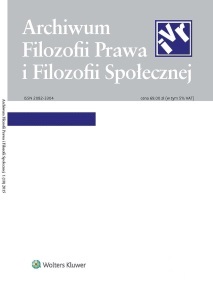
The subject of this article is an analysis of the idea of popular constitutionalism formulated in American philosophy of law. The starting point for the author is to identify the lack of legitimacy of contemporary government, and consequently its product – the positive law. The solution to this problem is supposed to be the idea of deliberative politics, based on social discussion and responsive law, created through the activity of many subjects, reflecting differentiated identities and ways of seeing the world. Deliberative politics and the responsiveness of law may, however, mean either a social reality, real discussion on law and politics, or a regulatory idea which the activities of elite bodies may advance. In American philosophy of law, the idea that popular constitutionalism was to respond to the postulate of legitimisation of the law by providing the public, and in particular, representatives of ’new social movements‘ such as ‘the civil rights movement‘ in the 1960s, direct participation in its creation and application, was an expression of concern also expressed by the authors of the left in the face of the law-making judgments of the Warren Court. The reformulation of this idea, made in particular by Bruce Ackerman, or its identification with American Supreme Court’s jurisprudence, is an expression of a change in understanding or even deconstruction of fundamental political and legal ideas such as representation and democracy. The consequence is the detachment of the concept of the People from a relation to a particular empirical community. This process appears as an aspect of the ideological phenomenon that goes beyond the American context, i.e. legitimacy, according to the criterion of realizing the slogan of protection of human rights, of elitist bodies. The examples are: the conceptions of Pierre Rosanvallon, and Dominique Rousseau. The author of the article points out the dangers of this movement. The radical shifting of the meaning of words causes irrationalisation of public discourse, and the legitmisation of the role of played by constitutional court as a defender of human rights can exclude all possibilities of the criticism of its lawmaking.
More...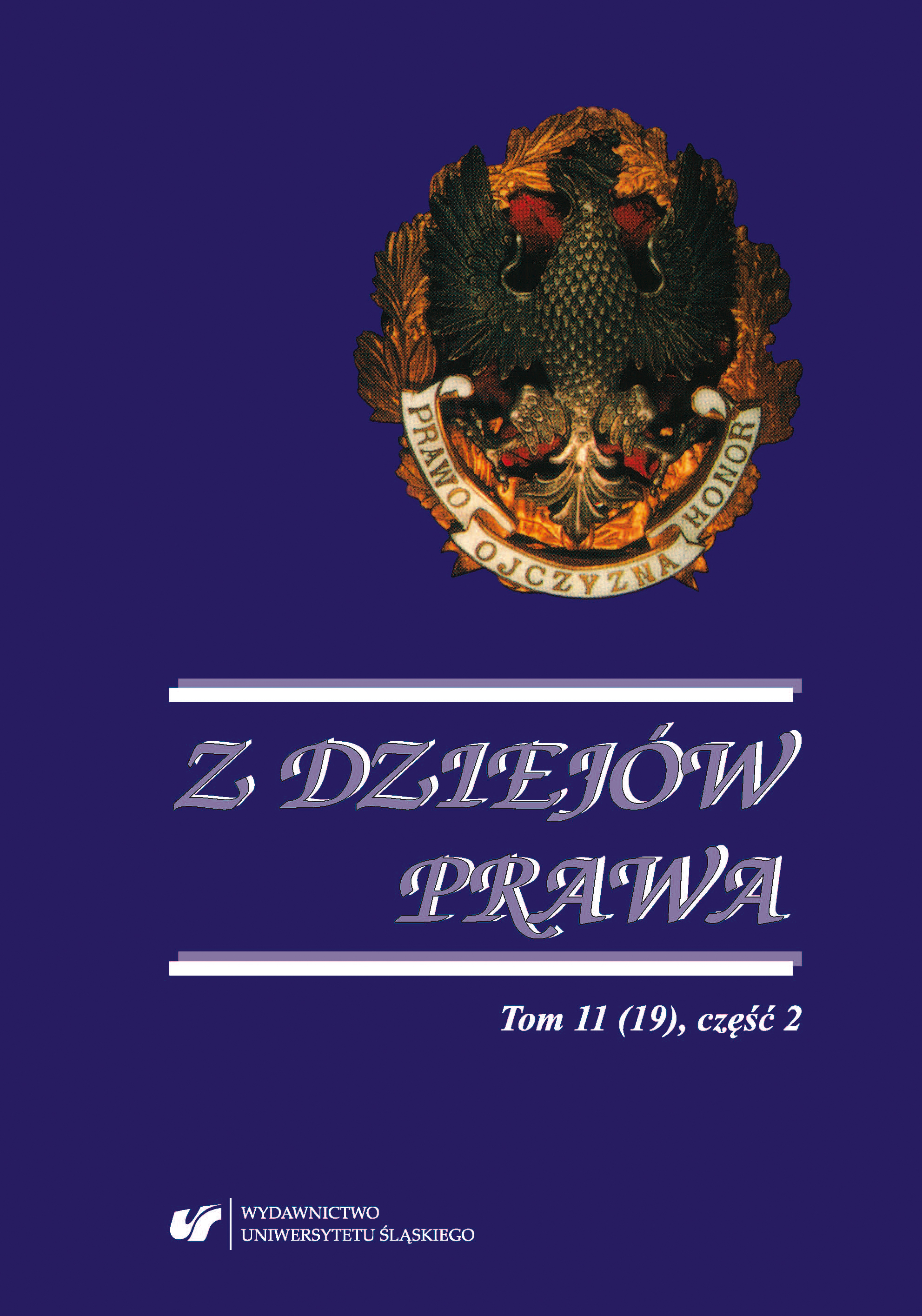
The normative system originating at the beginnings of the Roman monarchy bound the sacral realm and the realm of law together in ways that made it impossible to distinguish between those two orders. It was not until the 5th century BCE, when the rising autonomy of law prompted the question of the impact of Roman beliefs on the formation of legal institutions, especially the law of succession, highly reflective of religious convictions of the Romans in the early Republic. The law at that time, being formed by the college of pontiffs, or priests (pontifical jurisprudence), remained under a strong influence of faith professed by society, at the core of which was domestic worship (sacra privata) practiced in order to provide families and gentes with prosperity. The regulations regarding succession were aimed to maintain its continuity by introducing a universal successor (heres), linking an obligation to continue domestic worship with the patrimony (patrimonium), controlling a universal succession by way of pontiffs on the strength of the calatis comitiis will, and also by enabling the acquisition of an inheritance through usucapion (usucapio pro herede), and, finally, by broadening the scope of people responsible for religious rites to co-heirs (coheredes) and members of the gens (gentiles).
More...
Franciszek Ksawery Bohusz (1746—1820), Jesuit and diocese priest after the dissolution of the monastery, was a man educated in philosophy, theology, and law. Between 1777—1778 and 1781—1782, he made long journeys abroad, during which he got to know Czechia, Germany, France, England, Austria, Italy, and Switzerland. These were the journeys of an intellectual, typical of the period of Enlightenment. Not only did he admire edifices worthy of interest, visit museums and libraries, but he also tried to gain knowledge of the political regimes, social and economic relations in the visited countries. His observations were diligently noted down in travel journals and finally edited upon his return to the country. A lot of comments concern court law: civil and criminal, particularly procedural law. The traveler was also interested in the administration of punishments. The references to law vary from extensive, comprehensive discussions of whole branches of law to prevailing brief mentions of particularly interesting legal institutions. The author attempts to offer a possible objective view of legal solutions he became familiar with, yet, does not always fully succeed. It is worth noting his commentaries on English law, which are not only exceptionally extensive, but also filled with not always well-justified praise. On the other hand, his evaluations of other legal systems, for instance Swiss, seem to be rather harsh and stereotypical. Nevertheless, Franciszek Ksawery Bohusz’s observations on court law in the visited countries deserve a thorough analysis since they let us assess their accuracy and the degree to which some foreign legal solutions found appreciation in his eyes.
More...
Legislative competences guaranteed the voivodeship far-reaching independence within the Polish state’s system of government. A fundamental question arises as to what extent the scope of matters defined as self-governing by the constitutional bill of July 15, 1920, making the Silesian voivodship autonomous, breached the fundamental principles upon which the structure of government was based according to the March Constitution passed eight months later. It is mainly the case of the state’s uniformity. The terms a “self-governing system” and an “autonomous system of government” may be used interchangeably, noting that the binding phrase for a lawyer should be: a system based on self-governing laws, as it derives from statutory terminology. Regardless of which of these terms we are going to use, they will contain in essence, in their semantic layer a broad form of decentralization, perceived as a scope of competences ascribed to a given community and giving a local community vast freedom to realize their most required goals.
More...
The document discussed in this paper was prepared in 1950 by the Scientific-Advisory Committee, which was then operating at the Office of Minister of Justice. It was not released for publication, probably because of its highly controversial content. The Committee was established with an aim to promote Marxist-Leninist ideology in the Department of Justice and the study of law. The document contains the evaluation of fundamental legal textbooks which were the core of teaching law at universities at that time. In fact, it was a form of critique of their authors, the majority of whom did not apply Marxist ideology in their works. It was a most vicious attack and an outright threat against the professors meaning that no other approach would be tolerated. Some of the professors began to comply, but these were in the minority. Others applied the ideology on a very superficial level. Also, the textbooks of the deceased professors were criticized.
More...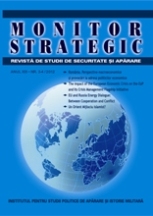
China and Japan, in spite of their geographic proximity and cultural resemblance, share a history based on animosity and mistrust, as a consequence of Japanese aggressive policies towards China since the end of the 19th century. Now, Japan’s strong alliance with the USA and the decision of the government to change the defence laws to allow national support for USA and sending troops out of the country for collective defence when national survival is at stake increased China’s awareness of Japan becoming a possible threat and this could enhance the security dilemma mechanism, thus the risk of a military conflict between China and Japan. The USA and the smaller Asian states must play a moderating role and help maintain a stable security regional environment.
More...